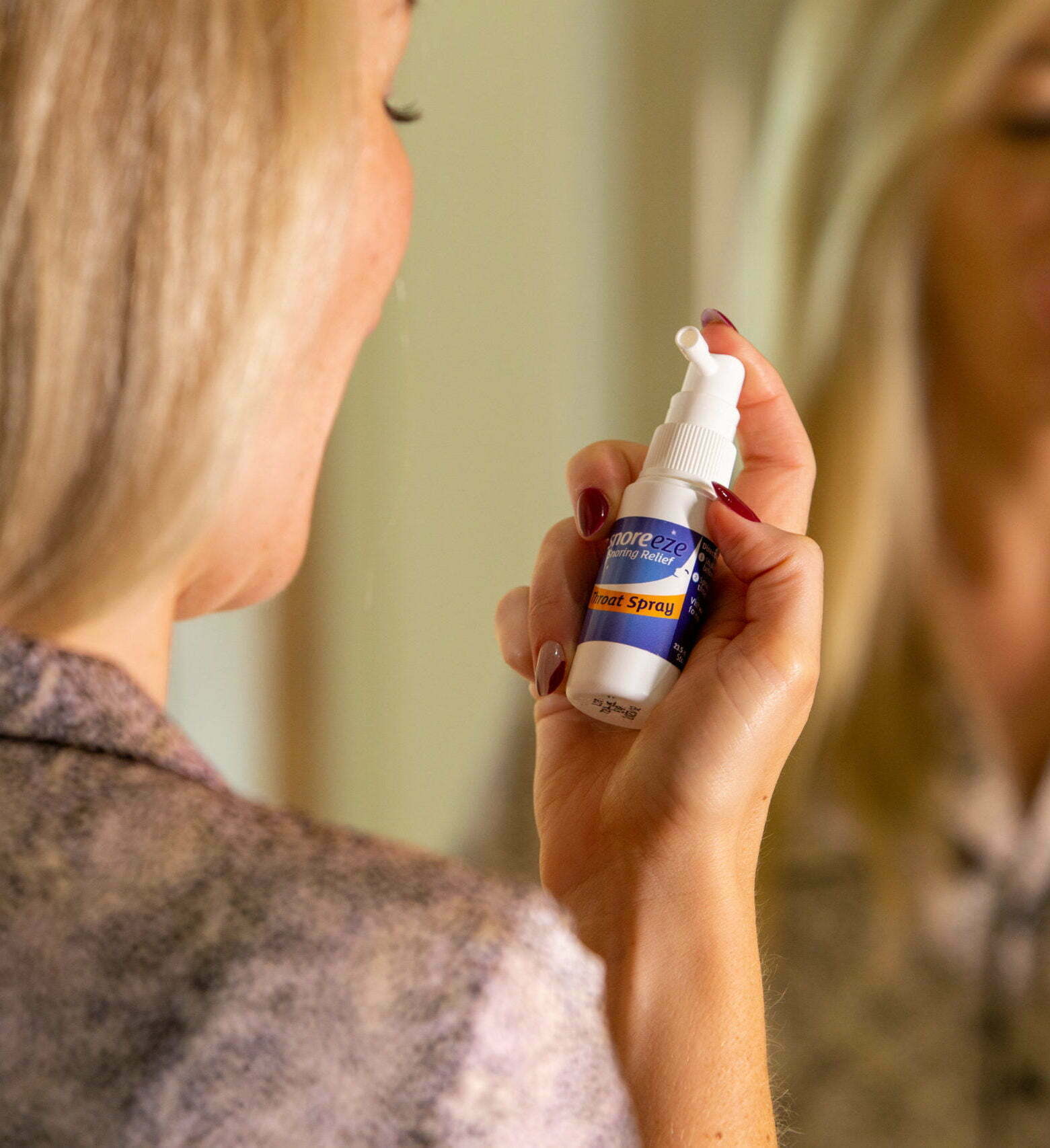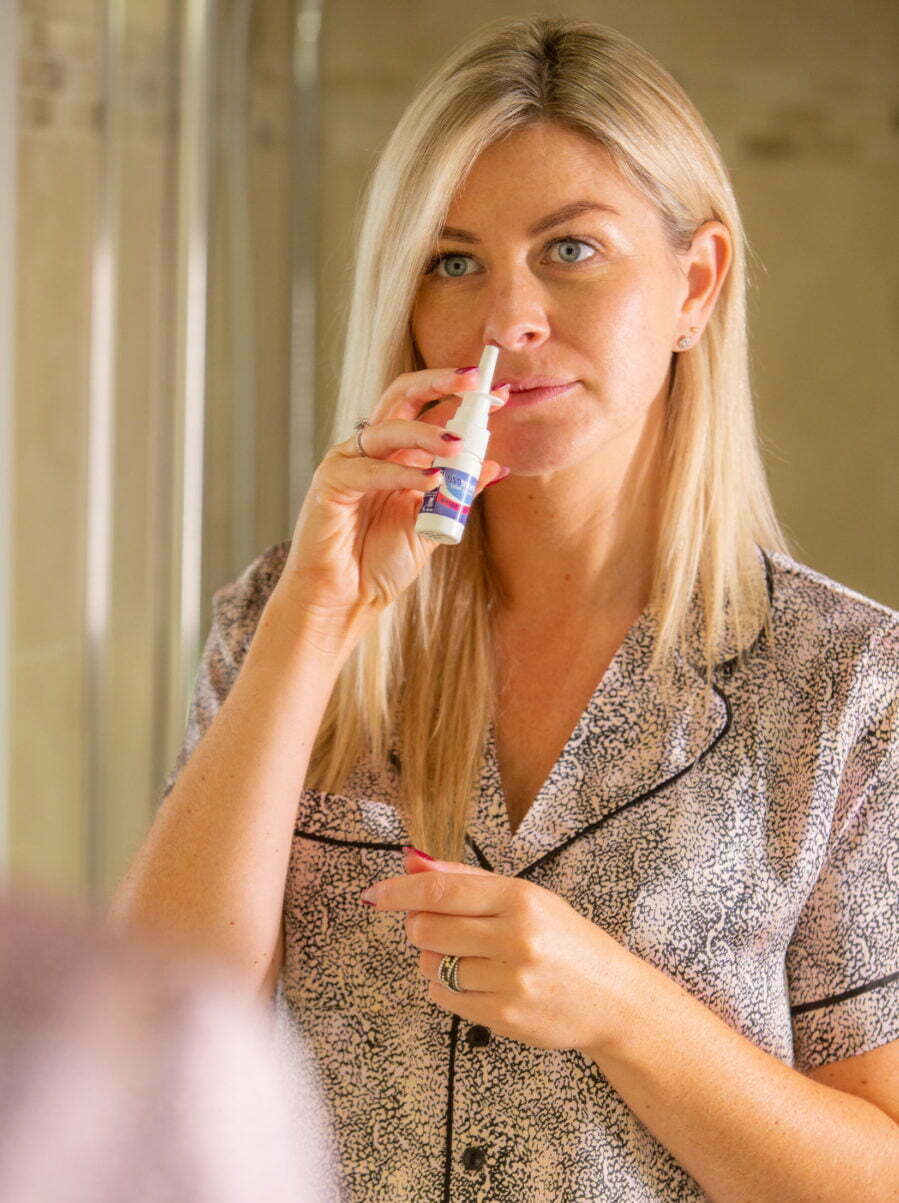What is Snoring?
When you sleep, your muscles relax, including the ones in your throat. This relaxation can cause your airway to narrow, making it difficult for your lungs to inhale and exhale the amount of air you need. If your airway narrows, the air you breathe is pulled through it faster. This causes the soft tissue in the airway to dehydrate and vibrate. The sound this makes is what you hear as snoring.

Reasons for snoring?

Age
Although you can snore at any age, people over 35 are more likely to be snorers. That’s because the older you get, the more your muscle tone decreases all over your body – including your throat. You might not have the muscle tone needed to keep your upper airway open during the night.

Weight Gain
If you’ve put on weight – even just a few extra pounds – it could be impacting how much you snore. You gain weight all over your body, including around the neck and throat. This pressure on your airway can make it harder for you to breathe, leading to snoring.

Genetic disposition
You may have a naturally narrow upper airway, which could cause the soft tissue at the back of your throat to vibrate. If you also have a larger-than-average-sized tongue, it’s possible that this could partially or fully block the upper airway. Narrow nasal passages could have a similar effect on snoring as nasal congestion, causing you to breathe through your mouth, which can lead to snoring.

Medication
Some types of medication (such as sedatives) can relax the soft tissue at the back of your throat, increasing your risk of snoring. You might find that you don’t have the muscle tone needed to keep your upper airway open during the night.

Cold and allergies
When nasal tissue swells during a cold (or allergic reaction), the airflow through the nose becomes restricted. This congestion narrows your airway, forcing the air you breathe to travel faster and further dehydrate the tissue. This may force you to breathe through your mouth – and this can lead to snoring.

Alcohol
Alcohol can relax the soft tissue at the back of the throat and increase your risk of snoring. This relaxation means that you might not have the muscle tone needed to keep your upper airway open enough during the night. Alcohol also has a dehydrating effect on airway tissue.

Smoking
Just like allergies, smoking irritates the tissues in your throat and nose. This swelling can reduce the size of your airway, causing you to snore.

Sleep Position
Your sleep position can affect how much you snore. Lying flat on your back can cause your tongue to fall towards the back of your throat, increasing your chances of snoring.

Pregnancy
Snoring in pregnancy is fairly common, especially in the third trimester. While you’re pregnant, the amount of blood in your body increases, causing your blood vessels to expand. This can lead to swollen nasal passages, forcing you to breathe through your mouth and resulting in snoring. Weight gain might also settle around the neck, and this affects your ability to breathe freely.
What you can do about snoring
Simple lifestyle changes should always be your first port of call if you want to stop snoring. Cutting down on alcohol, quitting smoking and losing weight can all reduce your chances of snoring. If these changes don’t make an impact, a snoring relief product could help.
It’s important to remember that different products are designed for different types of snoring. Three of the most common types are:
Everyday snoring
Snoring with congestion
Loud snoring/OSA
Some people discover that they are a mix of two or more types. Choosing the product that’s right for your type means you’ll have more success at reducing your snoring.
Everyday Snoring
When you sleep, your muscles relax, including the ones in your throat. This relaxation can cause your airway to narrow, making it difficult for your lungs to inhale and exhale the amount of air you need. If your airway narrows too much when you’re asleep, the air you breathe is then pulled through it faster. This causes the soft tissue in the back of your throat to dehydrate and vibrate. The sound you hear is what most people know as snoring.
Typical signs of everyday snoring
• You sometimes wake with a sore throat
• You tend to sleep on your back
• You snore even when your mouth is closed


Snoring with congestion
Colds and allergies are a common cause of snoring. Along with seasonal allergies, many people also have an allergic reaction to bed dust/mites that they are unaware of.
When nasal tissue swells during a cold (or allergic reaction), the airflow through the nose becomes blocked or restricted. This congestion narrows your airway, forcing the air you breathe to travel faster and further dehydrate the tissue. This may force you to breathe through your mouth – and this can lead to a dry mouth, and snoring.
Typical signs of snoring with congestion:
• You have a blocked nose
• You suffer with congestion
• You sleep with your mouth open
• You’ve been diagnosed with a nasal abnormality
Loud Snoring and OSA
Snoring is caused by the soft tissue in the back of the throat vibrating when your airway relaxes during sleep. But in some cases, the airway becomes so narrow that the walls of the airway stick together and close up. This usually happens for around 10-30 seconds at a time, but can occur for longer – sometimes up to 50 times an hour or even more.
When the airway finally opens up again, you might emit a loud, violent snore. This event is known as an apnoea. Throughout the night, your body will constantly come out of deep sleep in order to help you breathe – doctors call this an “arousal”. Though you might not be aware of an arousal, this is what causes you to feel sleepy the next day. OSA can cause serious health problems if left untreated, including risk of stroke, heart disease and hypertension. If you suspect you have OSA, you should visit your doctor so they can recommend the most suitable treatment for you. Find out more information about sleep apnoea.
Typical signs of loud snoring / OSA
• Your snoring is very loud
• You wake up gasping/choking
• You feel excessively tired during the daytime

